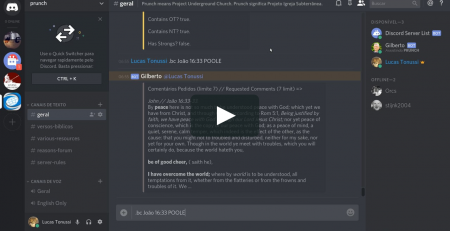Best Cross-Platform App Development Tools For Developers in 2019
Cross-platform app development is skyrocketing today because of the number of its numerous benefits. Due to the popularity of smartphones, companies are more focused on mobile app development.
Mobile apps can be a great way of promoting your business. From young ones to adults, more or less everyone has a smartphone today. Therefore, having a responsive and up-to-notch mobile app is every company’s need.
Companies are moving from websites to mobile apps, and that gave birth to another buzzword, “cross-platform app development”.
Besides their marketing advantage, cross-platform mobile apps are cheap and save time. You don’t have to update the web app and mobile app separately. Managing one simple app for both platforms is easier and less time-consuming.
In this article, we will share the best cross-platform application tools with you.
1) Adobe Build
Adobe Build is a cloud-based tool that works seamlessly with PhoneGap and compilation of code doesn’t take much time. To work on it, a developer must have little knowledge of Java.
The tool develops apps that work flawlessly on Windows Phone SDK, iOS SDK, and Android.
Its reusability feature enables developers to finish the project quickly and meet tight deadlines.
Furthermore, the tool can collect updates, manage portfolios, and don’t bother you about the maintenance.
On the other hand, there are some drawbacks of the tool as well. The data processing speed is quite slow and the background processing of APIs takes time.
2) Rho Mobile
It is a Ruby-based open-source framework that works on Windows, Mobile, iPhone, and Android. Just in case you are wondering what Ruby is, Ruby is a programming language like Java, Swift, C++, etc.
The framework has an independent server that helps you to store all application data. In this way, you can easily update your app on user’s devices. As native apps work well in dealing with available hardware, the process of application development becomes faster and accurate.
Some of its worth-noting advantages are:
- It uses Ruby language which is simple and productive.
- JRuby lets Ruby apps to run on Java containers.
- The DRY approach prevents repetition of codes enabling smooth development.
3) PhoneGap
Open source PhoneGap is another tool that assists you in building cross-platform applications. It allows you to create a hybrid app by using popular web technologies like HTML5, CSS3, and JS. The application made on PhoneGap runs on iOS, Android, Windows Phone, Firefox OS and more.
Moreover, it is cost-effective. That means if you are on a tight budget, PhoneGap is the right tool for you to start developing your cross-platform app. The program you write on PhoneGap can be run on various platforms, thereby saving you a lot of money.
4) Xamarin
If you want to build a multiple platform app using c# codebase, Xamarin is the right choice for you. Working on Xamarin, you can do anything with C# like Java or Object-C let you do. Furthermore, you can use the same IDE, language, and APIs everywhere. And for your convenience, Git integration is built directly into the Xamarin Studio.
As per the Xamarin stats, more than 15000 companies rely on their tools, and these 15000 companies also include some big names.
5) Unity3D
Its incredible graphics quality is the reason why this tool is part of this list. The use of this tool is not just limited to mobile apps. You can also export your apps or games to multiple platforms including iOS, Android, Windows, Xbox and many more.
Moreover, the tool comes handy to track user analytics and share your app on social networks. A separate community for a specific tool becomes very useful for all its users. It has a network of Unity3D developers called Unity Connect to help and get your questions answered if you’re having tech issues.
6)5App
Organizing and delivering resources to employees can be sheer drudgery for HR consultant and management. The tool is specifically designed to solve such problems. 5App uses HTML5 and JavaScript for coding of app and emphasis on the security of app data.
Through this tool, you can create relevant content to support your employee’s learning and enhance performance. Moreover, the tool is compatible with both Android and iOS devices.
7) Sencha
All you need is HTML5 knowledge to develop your app on Sencha. The app built on Sencha works fine on multiple platforms and devices. You can work with your team members, no matter where you are. This remote working flexibility will ultimately boost your productivity.
It’s easy to incorporate a Sencha app with both android and iOS Platforms. PhoneGap is a famous tool for translation purpose.
It’s not only limited to coding, but you’ll also have access to design tools. You can create your own themes, without even writing code.
Testing is the last and important part of any android app. The testing features in Sencha give you the most accurate results of your app’s quality upon testing.
.












Leave a Reply